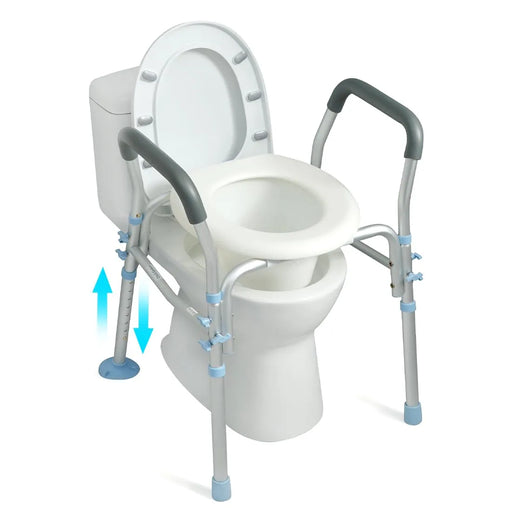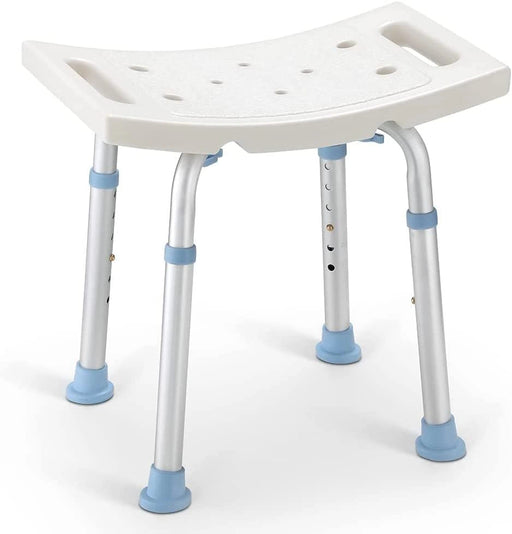11 Healthy Travel Tips for the Elderly
Travel may be a fantastic method for a senior to expand the mind, interact with a broader community, or just have good times. Exploring new surroundings and making new friends can assist older individuals in being physically active as well as emotionally connected. Travel, particularly after all those months of lockdown near home, might provide many older people with a much-needed relief from their usual surroundings and an opportunity to re-establish contact with friends and relatives who have been isolated by distance for so long.
Travel has its own set of issues, but for senior adults and elderly travelers, there may be some specific challenges they must confront along the route, and they must take caution whether flying, driving lengthy journeys, or taking a cruise. Rapid temperature and climatic changes, lots of walking and standing, and the pressure of travel can all have a negative impact on an elderly person's health and well-being. There are, however, various methods to make travel more safe and secure.
1. Consult the Doctor
The Centers for Disease Control and Prevention suggests a pre-travel examination 4 to 6 weeks before a trip overseas. Your doctor or a travel medicine consultant can evaluate your health for travel, review the medications you'll need for your trip, and ensure you're updated on any required vaccines, including routine "children" vaccines and vaccines advised for specific destinations (such as hepatitis, typhoid polio or yellow fever). According to the CDC, tour operators should inform elder tourists about the significance of pre-trip medical exams.

2. Vital Medical Information
A physician's statement outlining your medical problems and the usage of certain drugs and devices may be essential. For instance, if you are using needles to take one of your prescriptions, you'll need a doctor's letter stating why you're traveling with injection equipment. Together with any doctor's documents, save the doctor's phone number on your cellphone and also a hard copy of the doctor's contact details. Besides, follow all airport regulations for carry-on luggage, and keep medications in appropriate containers or bags for quick retrieval. Packing everything in a transparent plastic bag can help you go through the baggage check faster.
3. In-flight Mobility and Medical Devices
Even if you are suffering from disabilities, you do not have to be stuck at home. You just need to bear them in mind while organizing your vacation. If you have chronic conditions or become weary easily, choose activities that will not push you beyond your limits. If a health concern worsens as a result of temperature, air quality, or other environmental variables, make sure to investigate climate and other situations that might cause a flare-up or otherwise interfere with your pleasure of the holiday. If you would like to travel with any specific tools or mobility aids, such as a rollator to assist with walking, the discussion with the travel agency is the appropriate chance to explain the requirements of an older traveler. The booking agent should respond to questions you have about the airline's allowed in-flight usage equipment, access to this equipment while boarding, and more.
4. Extra Travel Health Insurance
Whenever traveling with older adults overseas, it's vital to remember that Medicare, as well as certain commercial insurance plans, do not guarantee health coverage outside of the United States. Purchasing travel health insurance before crossing the Atlantic may be a smart decision. According to the research, older tourists who appeared at clinics were inclined to have life-threatening diseases than younger ones. In the case of illness, having appropriate insurance allows tourists to obtain quick medical attention. Consider getting evacuation insurance that covers transportation for required medical care when going to isolated places. When a premium credit card is used to book a vacation, it could also offer medical evacuation coverage.
5. Prevent Blood Clots
Certain precautions may be taken by travelers to assist avoid deep vein thrombosis. Avoid sitting in the same posture for lengthy periods of time on long-distance bus or aircraft flights; if allowed, choose an aisle seat. Every couple of hours, move your toes, stretch your legs, and take a stroll. Use compression stockings and keep hydrated. On long haul flights, compression stockings can aid promote blood circulation in the lower legs. Wear loose, comfy clothes to lessen the occurrence of heatstroke, hypertension, and high blood pressure. While sitting or standing for lengthy periods of time, loose clothes minimize the danger of blood clots. A doctor may recommend anticoagulants for long trips based on a senior's medical record.
6. Bear Medical Alert
Senior individuals with allergies or certain medical needs should carry a medical alert wristband or keep a medical alert card in their purses or backpacks. A medical alert lists all of a person's allergies and unique health problems, and it acts as a handy reference for physicians and pharmacists in other nations. Medical alerts are particularly useful while you are in the custody of emergency medical care; they will know not to inject anything noted on the card or wristband.
7. Consume Enough Water
Dehydration affects many elderly travelers, causing weariness and interfering with blood sugar levels. Stay hydrated throughout the journey, and eliminate caffeinated drinks and alcohol, since they would deprive the body of water and critical minerals.
8. Maintain Good Hygiene
Wash your hands frequently and sterilize the places likely to host bacteria surrounding your airline seat to prevent possible lower respiratory tract diseases such as pneumonia and bronchitis. Make sure your influenza and pneumonia immunizations are updated. According to the study, elder travelers should consider using face masks when traveling in congested areas.
9. Against Altitude Sickness
Discuss your trip with your physician if your vacation destination is anticipated to include dramatic variations in altitude and environment. In the event of high-altitude trips, experts advise moderate and gradual acclimatization to altitude to allow the body to acclimate. Some doctors recommend the diuretic acetazolamide to avoid or alleviate the symptoms of altitude sickness. Some elderly visitors with heart or lung issues may be recommended to skip high altitudes completely, based on their health situation.
10. Be Cautious with Insects and Spiders
Dress in long-sleeved shirts and long trousers. Apply EPA-registered insect repellents and stay in hotels, resorts, or lodgings that have window screens. Mosquito netting is strongly recommended for older tourists who would like to sleep outside.
11. Select Senior-friendly Hotel

Even if many hotels could support a guest's mobility, there are certain off-the-beaten-path or historical locations where upgrades have not been accomplished. This can result in a fall hazard on stairwells or uneven surfaces. Before reserving a hotel, contact ahead to ensure that the hotel has elevators and, if necessary, inquire if the elevator is wheelchair friendly. If not, inquire whether they could accept the first-floor request. Even if you're going with a tour agency, don't be afraid to phone a hotel directly if you have accessibility issues.
Today's elderly are more mobile than they have ever been, traveling way more often. Increasingly active older folks are planning trips of a lifetime, from a break in the Alps to a trip in the Caribbean to an extended visit to an interesting foreign location. However, before departing, the wise senior traveler should prepare a complete trip plan that includes things and items important for maintaining health and wellbeing. With the advice provided above, seniors may ensure their capacity to deal with anything unforeseen that may occur away from family and friends.
Recommend Products
-
 Sale
Sale
300LBS Capacity Raised Toilet Seat with Arms
Original price $120.99From Original price $69.99Original price $120.99Current price $69.99From $69.99Current price $69.99OasisSpace Raised Toilet Seat with Arms - Safe and Convenient OasisSpace Raised Toilet Seat with Arms provides stable support for users to sit dow...
View full detailsSaleOriginal price $120.99From Original price $69.99Original price $120.99Current price $69.99From $69.99Current price $69.99 -
 Sale
Sale
Standard - 300LBS Capacity Shower Stool
Original price $51.99From Original price $29.99Original price $51.99Current price $29.99From $29.99Current price $29.99OasisSpace Medical Square Shower Stool for Bathtub OasisSpace Square Shower Stool for Bathtub is approved as the highest standard(FDA) for medical...
View full detailsSaleOriginal price $51.99From Original price $29.99Original price $51.99Current price $29.99From $29.99Current price $29.99



